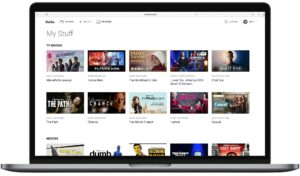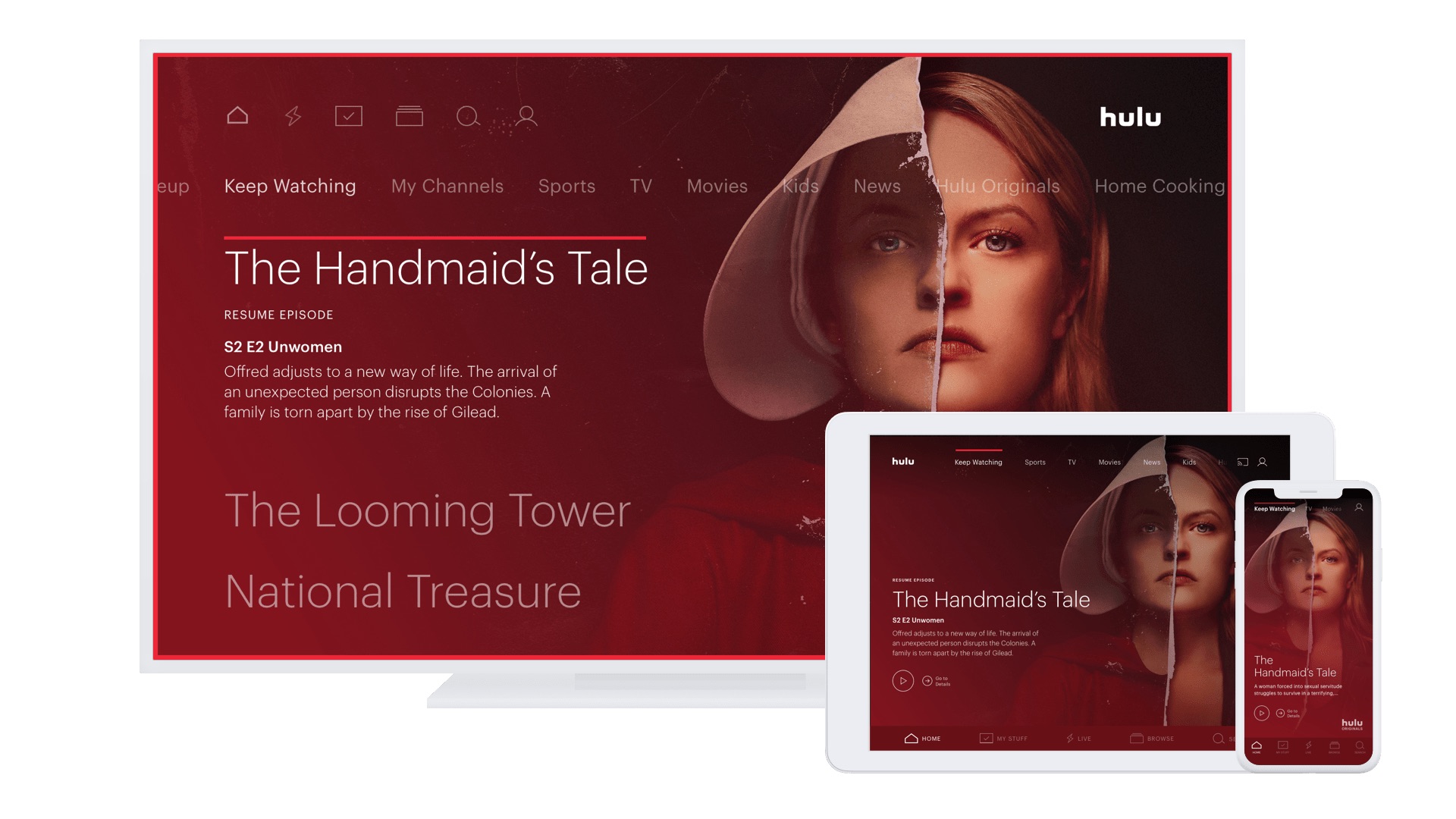We’re excited to partner with WORLDZ, a two-day global summit for marketers and innovators held in Los Angeles and designed to help bring together the minds of CEOs, CMOs, and other cultural icons in order to learn professional lessons from the very best. This interview is the second in a series leading up to WORLDZ 2019, hosted from September 10 and 11 in Long Beach, CA.

In the modern era, where it seems like every major media company has begun launching streaming services to host their own proprietary content, Hulu still leads the charge by a mile. Last year, 33 million Americans cut the cord on cable, while Hulu subscribers grew to more than 25 million, equaling a 48 percent growth for the streaming platform. Out of the record 495 original scripted television shows on TV in 2018, 160 were produced by digital services, including Hulu, Netflix, and Amazon Prime. Traditional broadcast networks such as ABC, CBS, NBC, Fox, and The CW only produced 146.
But with so much increasing competition, how does Hulu distinguish itself? For Nick Tran, Hulu’s VP of Brand Marketing and Culture, it’s all about a strong sense of brand identity and meaningful storytelling. We caught up with Tran ahead of Worldz to talk about streaming trends, viewer demographics, and how Hulu continues to excel.
In general, what should subscribers expect from streaming platforms in 2019?
For one, quality content. People have different tastes, which is why you see so many different groups creating their own original content, and platforms that are coming in and focusing on that. Some groups have jumped into creating original content while others haven’t really done so. I also think that the way you interact and engage with a streaming service has to be pretty seamless. Brands that are only centered on getting content but not taking into account the user experience will probably fall a little short— because viewers are going to continue to demand that.
I think there’s an intangible aspect too, how people feel about the service from an emotional standpoint. What does the brand stand for? People don’t necessarily want to see companies as a platform where they just access content; they want to see what the brand actually believes, and that it lines up with viewers’ own ideals. That there’s a reason behind the utility of something that people are going to spend their money on.
“People don’t necessarily want to see companies as a platform where they just access content; they want to see what the brand actually believes, and that it lines up with viewers’ own ideals.”
Right, it’s not just like having cable. There’s an interaction, and a sense of identity with each service.
Agreed. Using cable as an example: even up to around a decade ago, very few people had the option to choose providers. Hard lines were created into homes, and cable was something you either got or you didn’t. And then satellite came along, and now you had two options. With content currently delivered over the Internet, there’s a plethora of options. There are lots of choices and, like different flavors, people will need to feel like there’s something more substantial with one service versus another. I firmly believe that the more choices there are available, the more they’ll want to differentiate brands from each other. Part of that is, what does this company stand for and work toward? It’ll be value added on top of what they’re already expecting.
 What are some things that Hulu is currently doing (or launching soon) to separate itself from other platforms? If people only have the budget to subscribe to one or two streaming platforms, why Hulu and not Disney+ or HBO Max or others?
What are some things that Hulu is currently doing (or launching soon) to separate itself from other platforms? If people only have the budget to subscribe to one or two streaming platforms, why Hulu and not Disney+ or HBO Max or others?
What really differentiates Hulu is an incredibly extensive library. We have 85,000 plus episodes available in our on-demand library that you can stream, which is an insane amount of content. So there’s that breadth, and you can also include HBO or Showtime or Starz as a premium add-on. We have a lot of innovative things we’re exploring, like our “Friends with Benefits” program [where viewers are provided with unique opportunities to explore the worlds of their favorite shows on Hulu through exclusive perks and experiences], which is something that I think pushes us forward with our audience and fans.
One thing I love about Hulu is that we’re a platform that lets people—our writers, directors, producers, and all the crews—explore perspectives you wouldn’t normally see, with shows like The Handmaid’s Tale and Ramy. We’re striving to be a platform where people can find their voice and find opportunities to be connected to stories that embody their ideals, backgrounds, and passions.
So much of the conversation these days circles around boomers versus millennials, but those aren’t the only two demographics tuning in.
“We have 85,000 plus episodes available in our on-demand library that you can stream, which is an insane amount of content.”
I’m fascinated by the shifting landscape of Gen Z and what they’re watching, how they behave, and seeing what things they care about. Their general makeup, in terms of ethnic diversity and gender fluidity among other elements, are all things we’re starting to learn about with this generation. And I think you’ll start to see more and more of that come to life and appear in content over the next few years. That inclusion will really start to become commonplace, and will be what people come to expect in quality programming.
The way we consume entertainment has changed so radically in the past few years. Where do you think the industry is headed next? Are there trends or new directions that you’re beginning to see now that readers should be mindful of?
From a technology standpoint, I think any concerns that people had with streaming will start to dissipate. As things like 5G really take hold over the next couple years, there’ll be less issues of uptime or bandwidth; it’s going to become an afterthought. Like how very few people today have telephone landlines for their homes because cell reception is everywhere—compared to ten years ago, when you sometimes needed to find areas with connection or have a landline as a backup. Content-wise, look at Disney’s growth, which is creating so much opportunity to offer families an entertainment portfolio that’s never been done before. As far as the future beyond that? I don’t know—I will say that Hulu has been a company for the last decade. To see how far we’ve come, and then to try and speculate how it’ll be in the next ten years…I can’t even imagine. FL







